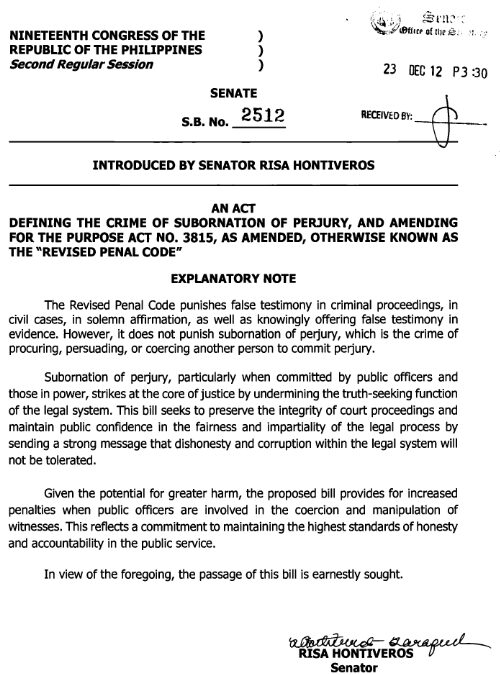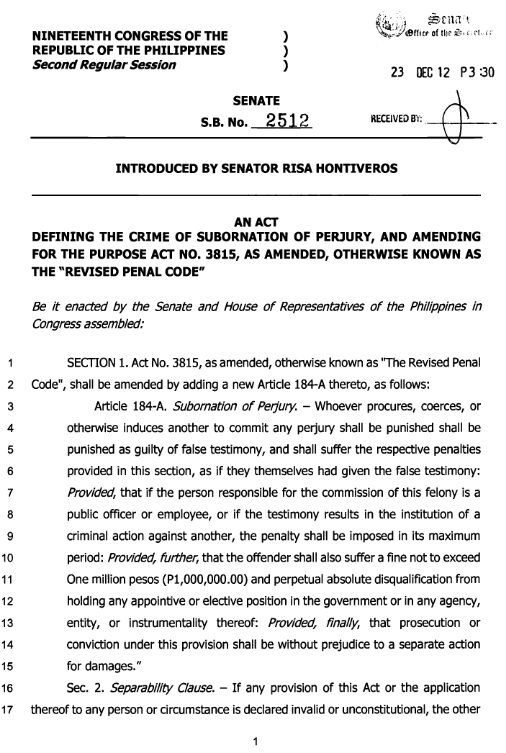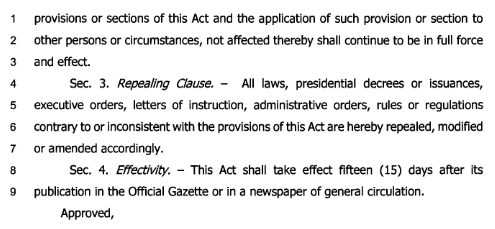Subornation of Perjury: Examining the Alleged Inducement of PCol. Hector Grijalde
In recent developments surrounding the ongoing investigation into the War on Drugs, allegations of subornation of perjury have surfaced, with claims that Congressmen Benny Abante and Dan Fernandez attempted to induce PCol. Hector Grijalde to make statements linking former President Rodrigo Duterte to the controversial anti-drug campaign and its reward system. This issue brings to light significant questions about perjury, the ethical obligations of public officials, and the influence of political agendas on legal proceedings.
Understanding Subornation of Perjury
Subornation of perjury refers to the act of persuading, inducing, or enticing someone to commit perjury — that is, to deliberately provide false testimony under oath. Under both Philippine law and international legal standards, subornation of perjury is considered a serious offense, as it undermines the integrity of judicial processes and can lead to wrongful convictions or the obstruction of justice. Public officials implicated in such acts can face legal repercussions and potential disciplinary actions.
In this context, the accusation that Congressmen Abante and Fernandez attempted to induce PCol. Grijalde to confirm a statement by Royinda Garma linking former President Duterte to the War on Drugs raises both legal and ethical issues. If proven, such actions may not only constitute subornation of perjury but also suggest an attempt to manipulate the judicial process.
The Alleged Inducement of PCol. Hector Grijalde
PCol. Hector Grijalde reportedly faced pressure to corroborate the statements of Royinda Garma, a former police officer whose testimony has been central in implicating high-ranking officials in the anti-drug operations. Garma’s statements allegedly attempted to link the Duterte administration to specific operational tactics within the War on Drugs, including an alleged reward system for successful anti-drug operations. This purported “reward system” has been a focal point of criticism, as it has been linked to extrajudicial actions and raised concerns regarding the motivation behind aggressive police tactics.
According to sources, Grijalde was allegedly approached by Congressmen Abante and Fernandez to confirm Garma’s statements in an effort to directly implicate Duterte and other officials. This situation has raised serious questions about the motivations of the congressmen and their adherence to legal and ethical standards.
Legal Implications and Accountability
If proven, these allegations could have serious legal implications for Congressmen Abante and Fernandez. Under Philippine law, inducing a person to commit perjury is a criminal offense that carries potential penalties, including imprisonment. For public officials, the offense is further compounded by their duty to uphold public trust and the integrity of the justice system. Public officials found guilty of subornation of perjury may face additional penalties, such as disqualification from holding public office, in addition to any criminal penalties.
The legal principle of accountability emphasizes that public officials must conduct themselves in a manner that upholds the rule of law. Any attempt to interfere with legal proceedings, particularly by pressuring witnesses to provide false or misleading testimony, is a direct violation of this principle.
The Broader Implications: Politics, Justice, and Public Trust
The alleged actions of Congressmen Abante and Fernandez reflect a broader issue within the Philippine justice and political systems, where political agendas can sometimes overshadow the pursuit of justice. High-profile cases, particularly those involving controversial figures and policies, are often subject to intense public and political scrutiny. As such, it becomes critical for all parties involved to act with transparency, accountability, and respect for the legal process.
If allegations of subornation of perjury are proven, it could have significant repercussions on public perception and trust in political figures. With a country deeply divided over the legacy of Duterte’s War on Drugs, actions that appear to politicize judicial proceedings may deepen existing rifts and lead to further skepticism about the motivations of public officials.
Conclusion
The allegations against Congressmen Benny Abante and Dan Fernandez serve as a stark reminder of the importance of integrity within the justice system. The rule of law and public trust depend on the ethical conduct of public officials. As the investigation continues, it is crucial that all parties are held accountable and that any attempts to manipulate legal proceedings are addressed in accordance with the law.




